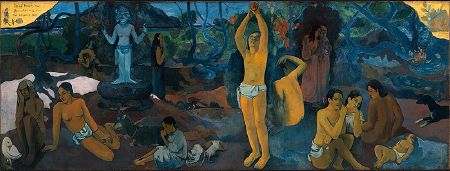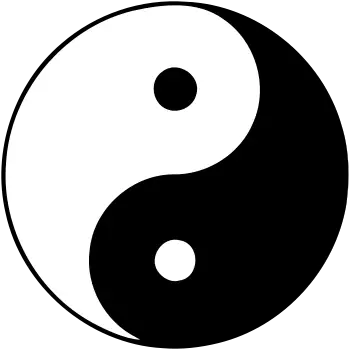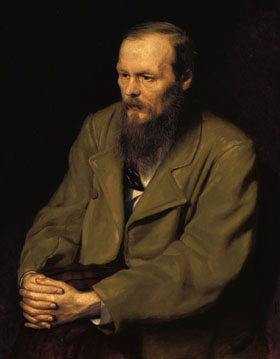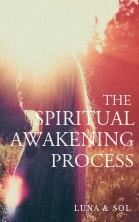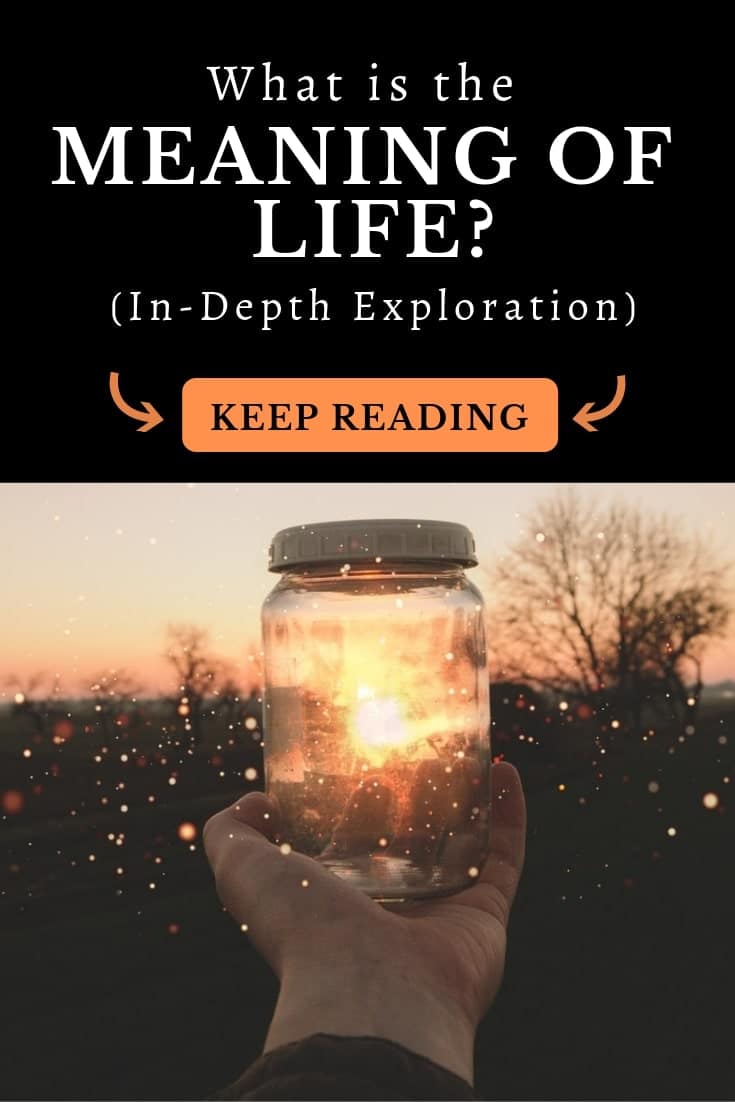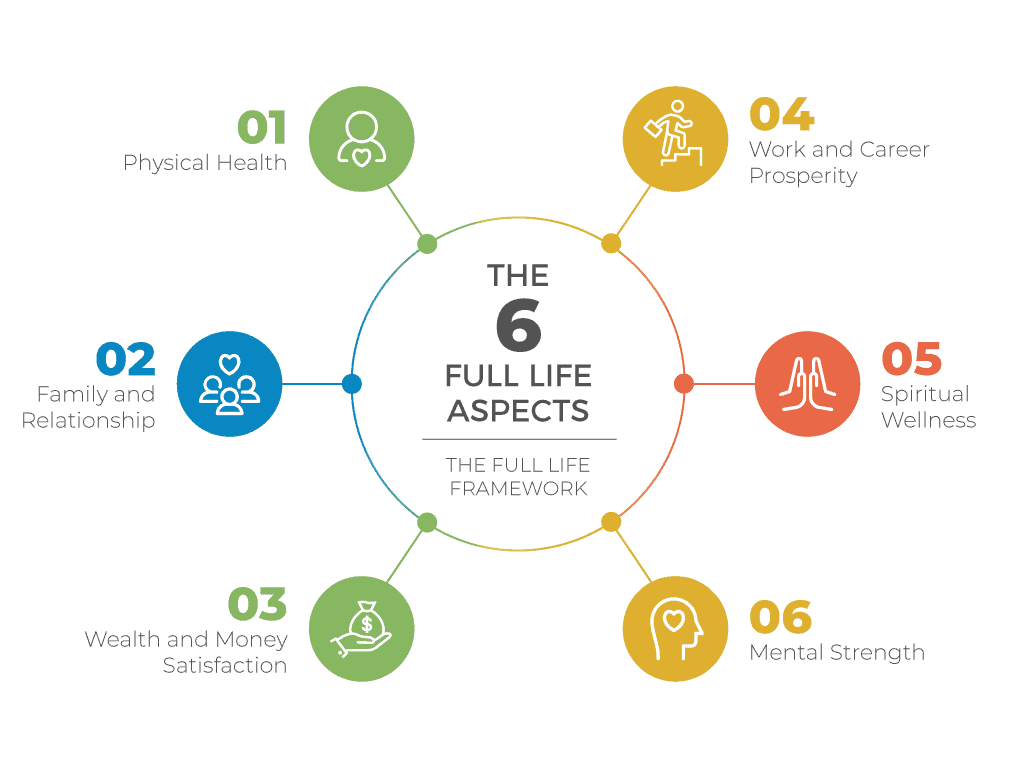What is the sense of life
What is the sense of life
Thoughts on the Meaning of Life
Featured in:
“What is the meaning of life?” is probably a question every human thinks about at some point in his or her life. When you are watching the stars in the night sky, you can’t help but wonder what is the sense of all of this. Yet the question is an elusive one, as there seems to be no definite answer – we all have different thoughts on the sense of life.
© Shutterstock | Olesia Bilkei
In this post, we’ll explore some of these viewpoints. We’ll first look at six different schools of thought and what they’ve said about the meaning of life. We’ll then look at some of the most common perspectives on the subject: the religious and the secular way of explaining your purpose. Finally, we’ll provide you some steps to help make more sense of it all and to find your own purpose and passion to live a more meaningful life.
6 VIEWS ON THE MEANING OF LIFE
The intriguing question “Why am I here?” has been a driving force of philosophy and different schools of thoughts. It’s hard to know when exactly did humans first start pondering the sense of life, but the variety of ways you can answer these questions shows how essential the idea has been for human thinking.
It’s not a surprise then to find out how many different ideas there are around when it comes to the meaning of life. Most philosophical schools of thought have had an input into what makes life meaningful and worth living.
We’re introducing six different views on the topic, to guide you through a snapshot of explanations.
The Humanists
“…one ought always to ask oneself what would happen if everyone did as one is doing; nor can one escape from that disturbing thought except by a kind of self-deception.” – Jean-Paul Sartre
The Humanists are perhaps one the most known group discussing the meaning of life in today’s world. One of the reasons is its challenge of religious schools of thought that often controls the current discussion.
For the Humanists, there is no specific meaning of life; instead everyone has their own reasons. Instead of turning outwards to seek for a purpose, people should consider the things that provide them happiness and meaning.
Therefore, instead of focusing on the sense of life, you should focus on figuring out what makes you happy. The key is finding enjoyment in things that are meaningful to you, even though they might not appeal to everyone. Yet, you should also ensure the things you find enjoyable don’t infringe on the rights and needs of others.
Watch the below video, which the British Humanist Association recently ran on how to know what is right and what is wrong:
The Epicureans
“The things you really need are few and easy to come by; but the things you can imagine you need are infinite, and you will never be satisfied.” – Epicurus
The Epicureans are often quoted when people discuss the meaning of life. Unfortunately, the ideas of these thinkers can easily be simplified and viewed through rose-tinted glasses.
To understand the Epicureans’ view of the sense of life, you must understand how they viewed human body and every other thing in the universe. To them everything is made up of small particles and without the particles a person cannot live. Furthermore, the particles can’t survive without a living body, which means that nothing can survive after death. Therefore, there’s no afterlife – all you have is the time here on Earth.
This results in the meaning of life being the need to essentially maximize pleasure and minimize pain. But it doesn’t mean you should do what you want. According to Epicurus, good behavior and just actions are necessary for feeling pleasure, as guilt and anxiety will always catch up with you and make you feel pain. Therefore, you should only do things that won’t cause pain and anxiety in the long-term or later on.
The Cynics
“We have two ears and one tongue so that we would listen more and talk less.” – Diogenes
The Cynics were a group of thinkers in ancient Greece, highly influenced by the teachings of Socrates. The group saw the society around them filled with hypocrisy and wealth, and they felt it wasn’t helping people live virtuously or stay happy.
The meaning of life was to be found in a moral existence that was compatible with the natural order of things. For people to be happy, they had to decide for themselves what was right and wrong. It also called for self-sufficiency, as freedom from the need for possessions and for companionship was the ultimate way of living a meaningful existence.
Nihilism
“Every belief, every considering something-true is necessarily false because there is simply no true world.” – Friedrich Nietzsche
Nihilism is perhaps among the most misunderstood schools of thoughts, as its basic tenets can often be simplified a bit too far, just like the teachings of Epicurus. Nonetheless, for a true nihilist, there are no things such as value or knowledge. In fact, there is no point to human existence.
It isn’t surprising then how the meaning of life of nihilism is essentially that there isn’t any meaning. Although in the eyes of a nihilist, the meaninglessness doesn’t matter, as nothing in the world is valuable.
The Cyrenaics
“The art of life lies in taking pleasures as they pass, and the keenest pleasures are not intellectual, nor are they always moral.” – Aristippus
The Cyrenaics are a group of like-minded thinkers who formed around 400 B.C. The founder, Aristippus, was a student of Socrates and the famous philosopher largely influenced the group’s ideas.
For the Cyrenaics, knowledge and experience are subjective, always influenced by individual experiences. For this reason, truth is innately personal, with each person experiences the world distinct to anyone else.
Pleasure in the present moment is what we should be aiming for. The future was uncertain, according to the Cyrenaics, which means you should live in the moment, not by planning for the future. In essence, the meaning of life would be to seek things that are most enjoyable to you in the moment, even if it’s outside of the social convention.
Mohism
“One who talks a lot but takes actions slowly will not be listened to even if he is right.” – Mozi
Another group of thinkers established itself in China during the same time as the Cyrenaics were starting out in Greece. The movement’s father was Mozi and Mohism’s central idea was to argue and discuss ideas such as the sense of life.
Mohism involves 10 doctrines, which people should abide by in everyday lives. For them, the meaning of life is only achieved through compassion and care towards other people, by treating everyone’s needs equally.
This would mean seeking universal equality, which for Mohism also meant removing concentration of wealth. People should also avoid consuming luxury and entertainment for the sake of it, and instead focus on ensuring everyone had the same degree of happiness.
Watch this lengthy documentary on the meaning of life. Very insightful.
THE COMMON PERSPECTIVES ON THE MEANING OF LIFE
While the above are some of the strategies used to explain where and how to find the meaning of life, there are other ways to answer the question “What is the meaning of life?” The answers are not necessarily associated with a specific philosophy in life, but nonetheless, are answers people regularly find themselves giving when they ponder the issue.
In general, the outlook on the sense of life can be divided into two types of answers: the religious perspectives and the secular perspectives.
Religious perspectives
A number of people include religious elements to their meaning of life. The religious perspectives tend to ascribe to an ‘outside’ force, which provides purpose and meaning. More importantly, the external force or spirit is what guides the behavior, often not just in this life, but the one after.
The world has experienced a number of religions and even today, you have a number of different ways to practice and believe. If you were to make a simplification, you could divide religions to the western religions, such as Christianity, and the eastern religions, such as Taoism. The distinction isn’t necessarily as much to do with the location, but rather the belief system. Western religions are typically considered monotheist, like Judaism and Islam, whereas eastern religions are more pluralist, such as Hinduism.
If you view the western religions on answering the question “What is the meaning of life”, the answers often fall along the lines of:
On the other hand, the eastern religions answers follow the patterns of:
As you can see, the purpose and meaning are focused on not just the here and now, but for what happens to you after your time ends on this earth.
Below are some of the famous, religion-inspired quotes regarding the sense of life, which hopefully inspire you to think about the purpose of life:
“May you live your life as if the maxim of your actions were to become universal law.” – Immanuel Kant
“You will never be able to please all of the people all of the time, so concentrate on pleasing your Maker because that’s what really matters.” – Mufti Ismail Menk
“Your duty is to treat everybody with love as a manifestations of the Lord” – Swami Sivananda
“Life is a series of natural and spontaneous changes. Don’t resist them; that only creates sorrow. Let reality be reality. Let things flow naturally forward in whatever way they like.” – Lao Tzu
Secular perspectives
But there have always been secular ways of thinking about the sense of life. As religious belief is waning in many Western countries, secular ideas around life’s meaningfulness and purpose are even more prominent.
For secular perspectives, the focus is naturally on the here and now. Since there is no belief in the afterlife or reincarnation, the purpose is to be happy and have an impact in the current moment or at least during one’s life on earth.
Secular answers to questions, such as “What is the meaning of life?” would include things like:
Secular perspectives don’t necessarily deny the existence of a god or a spiritual force; the difference is that the meaning and purpose doesn’t stem from an external source and you aren’t living in a specific manner on Earth in order to gain something later. Your actions are not aiming to please or prepare you for another unknown existence. Therefore, secular perspectives are much more focused on the present.
Just like there is variety of religious perspectives, secular thoughts on the meaning of life can differ in tone and style. You can be advised to focus on helping others and creating things that are useful for others, while some thinkers call for you to focus on yourself and your desires more.
We’ve gathered some of the challenging thoughts on the sense of life, in terms of secular perspectives, and you can find them below:
“There is only one meaning of life: the act of living itself.” – Erich Fromm
“For the meaning of life differs from man to man, from day to day and from hour to hour. What matters, therefore, is not the meaning of life in general but rather the specific meaning of a person’s life at a given moment.” – Viktor E. Frankl
“Living in a way that reflects one’s values is not just about what you do, it is also about how you do things.” – Deborah Day
“Love is our true destiny. We do not find the meaning of life by ourselves alone – we find it with another.” – Thomas Merton
HOW TO FIGURE OUT YOUR LIFE’S PURPOSE
“Each man must look to himself to teach him the meaning of life. It is not something discovered: it is something molded.” Antoine de Saint-Exupery
There are a number of ways to live a purposeful life and the truth is, people have different ways of answering the questions “What’s the meaning of life?” If you are thinking about what gives meaning and purpose to your life, you can use the above steps to help create your own thoughts and actions about the sense of life.
Step 1: Discover yourself
“I can teach anybody how to get what they want out of life. The problem is that I can’t find anybody who can tell me what they want.” – Mark Twain
First, you should discover yourself – to find the things that define you. A good way to start is by thinking about the things that are most important to you, the personal values that matter the most. This might be your family or friends, it might deal with being kind or perhaps it’s changing the society around you.
This video might inspire you to find out what you really want from life.
Whatever your true valuables are, write them down and reflect on why they mean so much to you. What is it that they add to your life?
You also want to define the things that are meaningless to you, the things you don’t enjoy. These could be things such as the daily grind or owning material possessions. It might be bigger things like having a family or settling down. Be honest with yourself and discover the things that wouldn’t add value or purpose to your being.
Step 2: Identify your unique talents
“Use what talents you possess; the woods would be very silent if no birds sang there except those that sang best.” – Henry Van Dyke
We all have unique talents; we just have to find them and learn to use them to our benefit. Examine your skills and discover the things you are good at doing. It might be that you are good at writing stories or you might be good at helping other people find their voice. Perhaps numbers come easy to you or you can come up with amazing flavor combinations when cooking.
Everyone has these unique characteristics – the things we do better than anyone else. You don’t even need to use the talent as a profession or a way to earn money. When you find something you enjoy, you can do it whenever you have time – the fulfillment you get is a big enough reward.
Step 3: Find a cause you are passionate about
“There is no passion to be found in settling for a life that is less than the one you are capable of living.” – Nelson Mandela
Finally, you want to find your true passion because it can open a completely new world for you, in terms of happiness and fulfillment.
What is an issue or a topic you are passionate about? Perhaps it’s big themes like education or solving childhood poverty. But passion can be smaller things like gardening or reading books.
You might want to solve or change an issue in your local community or society, perhaps by starting your own business. But you can also manifest your passion by setting up your own blog about contemporary poetry or organizing baking nights with friends. The key is to find something that you are passionate about and then work towards your passion like there is no tomorrow.
FINAL THOUGHTS
The answer to the question will always be different depending on whom you ask. Perhaps that’s the beauty of the sense of life – we all find our own meaning and purpose, with each perspective adding something to the conversation.
Finding meaning in your everyday life is important and it can be useful to reflect on things. Reading other viewpoints, discovering your own inner passion and talent, and understanding the different ways of explaining the world can help you live a more purposeful life.
Now, what do you think? What’s the meaning of life?
Mark Manson
Life Advice That Doesn’t Suck
MM.net
Recent Articles
Popular Articles
Nothing Found
Sorry, but nothing matched your search terms. Please try again with different keywords.
The Meaning of Life Is a Ham Sandwich
It’s the ultimate question. The question that you and I and everyone has lain awake at night thinking about: What is the meaning of life?
Y ou know the question. It’s the ultimate question. The question that you and I and everyone have lain awake at night thinking about. The question that brings equal parts wonder and terror to our feeble minds. Why are we here? What is the point of it all? What is the meaning of life?
Well, fortunately, I figured it out while I was at the gym this morning. I’m pretty sure it’s a ham sandwich. And no, I’m not saying that just because I’m hungry. There’s an explanation here. I’m going to explain it, clickbait titles and all, in, oh, the next eight minutes or so.
First off, before we can even appropriately ask “What is the meaning of life?” we must first settle something more subtle and something more important. Namely, what is meaning?
Table of Contents
What Is Meaning?
What is meaning? That may strike you as terribly navel-gazey and ultra-philosophical. And if that’s the case, I invite you to think about ham sandwiches for a moment, and just stick with me for a minute. Because it’s important.
What does it mean for something to mean something? As humans, we have a constant need to attach meaning to everything that happens in our lives.

My mom hugs me, that must mean that she loves me. My boss complimented me, that must mean I do good work. It’s going to be sunny tomorrow, that must mean I can wear my super-cool SpongeBob tank top to school.
Meaning is the association that we draw between two experiences or events in our minds. X happens, then Y happens, so we assume that means X causes Y. Z happens, and we get really bummed out and feel awful, therefore we assume that Z sucks.
Our brains invent meaning the way dogs shit—they do it gleefully and not even realizing that they’re ruining the carpet. Our brains invent meaning as a way to explain all the crazy shit that is going on in the world around us. This is important, as it helps us predict and control our lives.
But let’s be real: Meaning is an arbitrary mental construct.
Fifty people can watch the exact same event and draw fifty different meanings from said event. That’s why there’s so much arguing in politics. That’s why eyewitnesses are so unreliable in court. That’s why your friends are sometimes the biggest assholes—because that meaning you just shared, to them, meant something completely different.
Types of Meaning in Life
Our brains slap together two different types of meaning:
Cause/Effect Meaning: You kick the ball, the ball moves. You tell your friend his hair is ugly, your friend slaps you in the face. You do X, and with reliable certainty, Y will result.
We all need Cause/Effect meaning to survive. It helps us predict the future and learn from the past. Cause/Effect meaning primarily involves the logical parts of our brain. Science, for instance, is the constant search of more and more Cause/Effect Meaning.
Better/Worse Meaning: Eating is better than starving. Making money is better than being broke. Sharing is better than stealing. Better/Worse meaning has to do with the nature of our values—what we perceive to be most important and useful in our lives.
Better/Worse meaning relies mostly on the emotional parts of our brains. Generally what makes us feel good is what we immediately assume to be “good” or “better.”
Both forms of meaning evolved in our brains to help us survive. For thousands of years, humans needed to remember where certain food could be found, how various animals would respond when hunted, how weather patterns change and how to read the terrain. They also needed to know what would gain them acceptance within their tribe, what would curry favor from friends and earn approval from that sexy guy/gal in the loin cloth over yonder.
So in that sense, meaning is nature’s tool for motivation. It’s how evolution made sure we got shit done. Meaning drives all of our actions. 1 When there is great meaning attached to something, like our child is sick and starving, we will go to insane lengths to make things right. People will often even go as far as giving up their lives for some grand sense of meaning (see: religion, every war ever). Meaning is that effective at moving people.
Meaning is nature’s tool for motivation.
Conversely, when we feel we lack meaning in our lives, when shit just doesn’t seem to matter, when there’s no clarity on how or why things happen to us, we do nothing. We sit on the couch and twiddle our thumbs and watch lame reruns while complaining on the internet about lame reruns.
But here’s the kicker (and I swear I’m going to get to the ham sandwich):
Meaning is a resource that we must cultivate in our lives.
Meaning is not something that exists outside of ourselves. It is not some cosmic universal truth waiting to be discovered. It is not some grand ‘eureka’ moment that will change our lives forever.
Meaning requires action. Meaning is something that we must continually find and nurture. Consistently.

Meaning is like the water of our psychological health. Without it, our hearts and minds will shrivel and die. And like water, meaning flows through us—what is important today is not what was important years ago, and what is important tomorrow will not be the same as what is important today. Meaning must be sought out and replenished frequently.
How to Find Meaning in Your Life
In a very real sense, the meaning of life is therefore to create meaning.
So how does one create meaning? Two ways:
Solve Problems. The bigger the problem, the more meaning one will feel. The more work you do towards that problem, also the more meaning you will feel. Solving problems basically means finding ways to make the world a slightly better place. Can be as simple as fixing up your aging mother’s dilapidated house. Or as complex as working on the new great breakthrough in physics.
The point here is not to be picky. It’s easy, when we start thinking of how insignificant we are on a cosmic scale of the universe, to start thinking there’s no point in doing anything unless we’re going to save the world or something. This is just a distraction. There are tons of small, everyday problems going on around you that need your attention. Start giving it.
Help Others. This is the biggie. As humans, we’re wired to thrive on our relationships. Studies show that our overall well-being is deeply tied to the quality of our relationships, 2 and the best way to build healthy relationships is through helping others. In fact, some studies have even found that giving stuff away makes us happier than giving stuff to ourselves. 3 Go figure.
As such, it seems to be a “hack” in our brains that helping out other people gives us a greater sense of meaning and purpose. Just the fact you can say to yourself, “If I died, then someone is better off because I lived,” creates that sense of meaning that can propel you forward.
Find meaning in your life by solving problems and helping others.
The Trap of Setting Goals
A lot of people find meaning through setting goals for themselves. They want the corner office, the big car, the fancy-pants shoes. It gives them a reason to wake up in the morning, a reason to bust their ass at work. It gives them something that makes them feel important and something to look forward to every day.
But goals are a double-edged sword. You have to be careful.
Goals are good tools for building motivation. The problem is that, by themselves, they are arbitrary and empty.
Unless there’s a why behind the goal full of meaning, the goal itself will provide little long-term happiness or satisfaction.
Ever seen star athletes flounder after retirement? Or a guy who finally made his millions become deeply miserable because he doesn’t know what else to do with his life?
Goals are dangerous because the meaning they provide when you’re working towards them is the meaning that is taken away once you achieve them.
This is why all the superficial stuff like make a billion dollars, or own a Rolls Royce, or get your face plastered on the cover of a magazine all lead to a type of happiness that is shallow and short-lived—because the meaning is shallow and short-lived.
There has to be a deeper reason for your goals. Otherwise, the goals themselves will be empty and worthless in the long run.

Notice that it’s the athletes who aspire to be the best at their sport for some greater reason—to build a charity, to start a business, to transition into another career—who handle retirement the best. Notice it’s the millionaires who spent their life working towards a deeper cause that remain content once all of their goals are checked off the checklist.
But some goals don’t even have to be big and sexy.
Take a ham sandwich. I sat down to write this article hungry. That’s a problem in my life. And I promised myself I’d pump out this draft before going and making myself a sandwich. That gave this hour some extra meaning.
And you know what? Maybe my wife’s hungry and I can make her one too. You know, make the world a better place and all that shit while I’m at it.
So what’s the meaning of life? Well, for me, right now, it’s a ham sandwich. What will yours be?
How to Know Who You Really Are
It’s sometimes hard to know where we fit into such a complicated world and who we are in it. I’ve put together a 49-page ebook that will help you dig down to the core of who you are by exploring your personal values.
You’ll also get my monthly newsletter, lovingly called Mindfuck Monthly. You can opt out at any time. See my privacy policy.
Meaning of life
The question of the meaning of life is perhaps the most fundamental «why?» in human existence. It relates to the purpose, use, value, and reason for individual existence and that of the universe.
This question has resulted in a wide range of competing answers and explanations, from scientific to philosophical and religious explanations, to explorations in literature. Science, while providing theories about the How and What of life, has been of limited value in answering questions of meaning—the Why of human existence. Philosophy and religion have been of greater relevance, as has literature. Diverse philosophical positions include essentialist, existentialist, skeptic, nihilist, pragmatist, humanist, and atheist. The essentialist position, which states that a purpose is given to our life, usually by a supreme being, closely resembles the viewpoint of the Abrahamic religions.
Contents
While philosophy approaches the question of meaning by reason and reflection, religions approach the question from the perspectives of revelation, enlightenment, and doctrine. Generally, religions have in common two most important teachings regarding the meaning of life: 1) the ethic of the reciprocity of love among fellow humans for the purpose of uniting with a Supreme Being, the provider of that ethic; and 2) spiritual formation towards an afterlife or eternal life as a continuation of physical life.
Scientific Approaches to the Meaning of Life
Science cannot possibly give a direct answer to the question of meaning. There are, strictly speaking, no scientific views on the meaning of biological life other than its observable biological function: to continue. Like a judge confronted with a conflict of interests, the honest scientist will always make the difference between his personal opinions or feelings and the extent to which science can support or undermine these beliefs. That extent is limited to the discovery of ways in which things (including human life) came into being and objectively given, observable laws and patterns that might hint at a certain origin and/or purpose forming the ground for possible meaning.
What is the origin of life?
The question «What is the origin of life?» is addressed in the sciences in the areas of cosmogeny (for the origins of the universe) and abiogenesis (for the origins of biological life). Both of these areas are quite hypothetical—cosmogeny, because no existing physical model can accurately describe the very early universe (the instant of the Big Bang), and abiogenesis, because the environment of the young earth is not known, and because the conditions and chemical processes that may have taken billions of years to produce life cannot (as of yet) be reproduced in a laboratory. It is therefore not surprising that scientists have been tempted to use available data both to support and to oppose the notion that there is a given purpose to the emergence of the cosmos.
What is the nature of life?
Toward answering «What is the nature of life (and of the universe in which we live)?,» scientists have proposed various theories or worldviews over the centuries. They include, but are not limited to, the heliocentric view by Copernicus and Galileo, through the mechanistic clockwork universe of René Descartes and Isaac Newton, to Albert Einstein’s theory of general relativity, to the quantum mechanics of Heisenberg and Schrödinger in an effort to understand the universe in which we live.
Near the end of the twentieth century, equipped with insights from the gene-centered view of evolution, biologists began to suggest that in so far as there may be a primary function to life, it is the survival of genes. In this approach, success isn’t measured in terms of the survival of species, but one level deeper, in terms of the successful replication of genes over the eons, from one species to the next, and so on. Such positions do not and cannot address the issue of the presence or absence of a purposeful origin, hence meaning.
What is valuable in life?
Science may not be able to tell us what is most valuable in life in a philosophical sense, but some studies bear on related questions. Researchers in positive psychology study factors that lead to life satisfaction (and before them less rigorously in humanistic psychology), in social psychology factors that lead to infants thriving or failing to thrive, and in other areas of psychology questions of motivation, preference, and what people value. Economists have learned a great deal about what is valued in the marketplace; and sociologists examine value at a social level using theoretical constructs such as value theory, norms, anomie, etc.
What is the purpose of, or in, (one’s) life?
Natural scientists look for the purpose of life within the structure and function of life itself. This question also falls upon social scientists to answer. They attempt to do so by studying and explaining the behaviors and interactions of human beings (and every other type of animal as well). Again, science is limited to the search for elements that promote the purpose of a specific life form (individuals and societies), but these findings can only be suggestive when it comes to the overall purpose and meaning.
Analysis of teleology based on science
Teleology is a philosophical and theological study of purpose in nature. Traditional philosophy and Christian theology in particular have always had a strong tendency to affirm teleological positions, based on observation and belief. Since David Hume’s skepticism and Immanuel Kant’s agnostic conclusions in the eighteenth century, the use of teleological considerations to prove the existence of a purpose, hence a purposeful creator of the universe, has been seriously challenged. Purpose-oriented thinking is a natural human tendency which Kant already acknowledged, but that does not make it legitimate as a scientific explanation of things. In other words, teleology can be accused of amounting to wishful thinking.
The alleged «debunking» of teleology in science received a fresh impetus from advances in biological knowledge such as the publication of Charles Darwin’s On the Origin of Species (i.e., natural selection). Best-selling author and evolutionary biologist Richard Dawkins puts forward his explanation based on such findings. Ironically, it is also science that has recently given a new impetus to teleological thinking by providing data strongly suggesting the impossibility of random development in the creation of the universe and the appearance of life (e.g., the «anthropic principle»).
Philosophy of the Meaning of Life
While scientific approaches to the meaning of life aim to describe relevant empirical facts about human existence, philosophers are concerned about the relationship between ideas such as the proper interpretation of empirical data. Philosophers have considered such questions as: «Is the question ‘What is the meaning of life?’ a meaningful question?»; «What does it really mean?»; and «If there are no objective values, then is life meaningless?» Some philosophical disciplines have also aimed to develop an understanding of life that explains, regardless of how we came to be here, what we should do, now that we are here.
Since the question about life’s meaning inevitably leads to the question of a possible divine origin to life, philosophy and theology are inextricably linked on this issue. Whether the answer to the question about a divine creator is yes, no, or «not applicable,» the question will come up. Nevertheless, philosophy and religion significantly differ in much of their approach to the question. Hence, they will be treated separately.
Essentialist views
Essentialist views generally start with the assumption that there is a common essence in human beings, human nature, and that this nature is the starting point for any evaluation of the meaning of life. In classic philosophy, from Plato’s idealism to Descartes’ rationalism, humans have been seen as rational beings or «rational animals.» Conforming to that inborn quality is then seen as the aim of life.
Reason, in that context, also has a strong value-oriented and ethical connotation. Philosophers such as Socrates, Plato, Descartes, Spinoza, and many others had views about what sort of life is best (and hence most meaningful). Aristotle believed that the pursuit of happiness is the Highest Good, and that such is achievable through our uniquely human capacity to reason. The notion of the highest good as the rational aim in life can still be found in later thinkers like Kant. A strong ethical connotation can be found in the Ancient Stoics, while Epicureanism saw the meaning of life in the search for the highest pleasure or happiness.
All these views have in common the assumption that it is possible to discover, and then practice, whatever is seen as the highest good through rational insight, hence the term «philosophy»—the love of wisdom. With Plato, the wisdom to discover the true meaning of life is found in connection with the notion of the immortal soul that completes its course in earthly life once it liberates itself from the futile earthly goals. In this, Plato prefigures a theme that would be essential in Christianity, that of God-given eternal life, as well as the notion that the soul is good and the flesh evil or at least a hindrance to the fulfillment of one’s true goal. At the same time, the concept that one has to rise above deceptive appearances to reach a proper understanding of life’s meaning has links to Eastern and Far Eastern traditions.
In medieval and modern philosophy, the Platonic and Aristotelian views were incorporated in a worldview centered on the theistic concept of the Will of God as the determinant factor for the meaning of our life, which was then seen as achieving moral perfection in ways pleasing to God. Modern philosophy came to experience considerable struggle in its attempt to make this view compatible with the rational discourse of a philosophy free of any prejudice. With Kant, the given of a God and his will fell away as a possible rational certainty. Certainty concerning purpose and meaning were moved from God to the immediacy of consciousness and conscience, as epitomized in Kant’s teaching of the categorical imperative. This development would gradually lead to the later supremacy of an existentialist discussion of the meaning of life, since such a position starts with the self and its choices, rather than with a purpose given «from above.»
The emphasis on meaning as destiny, rather than choice, would one more time flourish in the early nineteenth century’s German Idealism, notably in the philosophy of Hegel where the overall purpose of history is seen as the embodiment of the Absolute Spirit in human society.
Existentialist views
Existentialist views concerning the meaning of life are based on the idea that it is only personal choices and commitments that can give any meaning to life since, for an individual, life can only be his or her life, and not an abstractly given entity. By going this route, existentialist thinkers seek to avoid the trappings of dogmatism and pursue a more genuine route. That road, however, is inevitably filled with doubt and hesitation. With the refusal of committing oneself to an externally given ideal comes the limitation of certainty to that alone which one chooses.
Presenting essentialism and existentialism as strictly divided currents would undoubtedly amount to a caricature, hence such a distinction can only be seen as defining a general trend. It is very clear, however, that philosophical thought from the mid-nineteenth century on has been strongly marked by the influence of existentialism. At the same time, the motives of dread, loss, uncertainty, and anguish in the face of an existence that needs to be constructed “out of nothing” have become predominant. These developments also need to be studied in the context of modern and contemporary historical events leading to the World Wars.
A universal existential contact with the question of meaning is found in situations of extreme distress, where all expected goals and purposes are shattered, including one’s most cherished hopes and convictions. The individual is then left with the burning question whether there still remains an even more fundamental, self-transcending meaning to existence. In many instances, such existential crises have been the starting point for a qualitative transformation of one’s perceptions.
Søren Kierkegaard invented the term «leap of faith» and argued that life is full of absurdity and the individual must make his or her own values in an indifferent world. For Kierkegaard, an individual can have a meaningful life (or at least one free of despair) if the individual relates the self in an unconditional commitment despite the inherent vulnerability of doing so in the midst our doubt. Genuine meaning is thus possible once the individual reaches the third, or religious, stage of life. Kirkegaard’s sincere commitment, far remote from any ivory tower philosophy, brings him into close contact with religious-philosophical approaches in the Far East, such as that of Buddhism, where the attainment of true meaning in life is only possible when the individual passes through several stages before reaching enlightenment that is fulfillment in itself, without any guarantee given from the outside (such as the certainty of salvation).
Although not generally categorized as an existentialist philosopher, Arthur Schopenhauer offered his own bleak answer to «what is the meaning of life?» by determining one’s visible life as the reflection of one’s will and the Will (and thus life) as being an aimless, irrational, and painful drive. The essence of reality is thus seen by Schopenhauer as totally negative, the only promise of salvation, deliverance, or at least escape from suffering being found in world-denying existential attitudes such as aesthetic contemplation, sympathy for others, and asceticism.
Twentieth-century thinkers like Martin Heidegger and Jean-Paul Sartre are representative of a more extreme form of existentialism where the existential approach takes place within the framework of atheism, rather than Christianity. Gabriel Marcel, on the other hand, is an example of Christian existentialism. For Paul Tillich, the meaning of life is given by one’s inevitable pursuit of some ultimate concern, whether it takes on the traditional form of religion or not. Existentialism is thus an orientation of the mind that can be filled with the greatest variety of content, leading to vastly different conclusions.
Skeptical and nihilist views
Skepticism has always been a strong undercurrent in the history of thought, as uncertainty about meaning and purpose has always existed even in the context of the strongest commitment to a certain view. Skepticism can also be called an everyday existential reality for every human being, alongside whatever commitments or certainties there may be. To some, it takes on the role of doubt to be overcome or endured. To others, it leads to a negative conclusion concerning our possibility of making any credible claim about the meaning of our life.
Skepticism in philosophy has existed since antiquity where it formed several schools of thought in Greece and in Rome. Until recent times, however, overt skepticism has remained a minority position. With the collapse of traditional certainties, skepticism has become increasingly prominent in social and cultural life. Ironically, because of its very nature of denying the possibility of certain knowledge, it is not a position that has produced major thinkers, at least not in its pure form.
The philosophy of Ludwig Wittgenstein and logical positivism, as well as the whole tradition of analytical philosophy represent a particular form of skepticism in that they challenge the very meaningfulness of questions like «the meaning of life,» questions that do not involve verifiable statements.
Whereas skepticism denies the possibility of certain knowledge and thus rejects any affirmative statement about the meaning of life, nihilism amounts to a flat denial of such meaning or value. Friedrich Nietzsche characterized nihilism as emptying the world and especially human existence of meaning, purpose, comprehensible truth, or essential value. The term nihilism itself comes from the Latin nihil, which means «nothing.»
Nihilism thus explores the notion of existence without meaning. Though nihilism tends toward defeatism, one can find strength and reason for celebration in the varied and unique human relationships it explores. From a nihilist point of view, morals are valueless and only hold a place in society as false ideals created by various forces. The characteristic that distinguishes nihilism from other skeptical or relativist philosophies is that, rather than merely insisting that values are subjective or even unwarranted, nihilism declares that nothing is of value, as the name implies.
Pragmatist views
Pragmatic philosophers suggest that rather than a truth about life, we should seek a useful understanding of life. William James argued that truth could be made but not sought. Thus, the meaning of life is a belief about the purpose of life that does not contradict one’s experience of a purposeful life. Roughly, this could be applied as: «The meaning of life is those purposes which cause you to value it.» To a pragmatist, the meaning of life, your life, can be discovered only through experience.
Pragmatism is a school of philosophy which originated in the United States in the late 1800s. Pragmatism is characterized by the insistence on consequences, utility and practicality as vital components of truth. Pragmatism objects to the view that human concepts and intellect represent reality, and therefore stands in opposition to both formalist and rationalist schools of philosophy. Rather, pragmatism holds that it is only in the struggle of intelligent organisms with the surrounding environment that theories and data acquire significance. Pragmatism does not hold, however, that just anything that is useful or practical should be regarded as true, or anything that helps us to survive merely in the short-term; pragmatists argue that what should be taken as true is that which most contributes to the most human good over the longest course. In practice, this means that for pragmatists, theoretical claims should be tied to verification practices—i.e., that one should be able to make predictions and test them—and that ultimately the needs of humankind should guide the path of human inquiry.
Humanistic views
Human purpose is determined by humans, completely without supernatural influence. Nor does knowledge come from supernatural sources, it flows from human observation, experimentation, and rational analysis preferably utilizing the scientific method: the nature of the universe is what we discern it to be. As are ethical values, which are derived from human needs and interests as tested by experience.
Enlightened self-interest is at the core of humanism. The most significant thing in life is the human being, and by extension, the human race and the environment in which we live. The happiness of the individual is inextricably linked to the well-being of humanity as a whole, in part because we are social animals which find meaning in relationships, and because cultural progress benefits everybody who lives in that culture.
When the world improves, life in general improves, so, while the individual desires to live well and fully, humanists feel it is important to do so in a way that will enhance the well-being of all. While the evolution of the human species is still (for the most part) a function of nature, the evolution of humanity is in our hands and it is our responsibility to progress it toward its highest ideals. In the same way, humanism itself is evolving, because humanists recognize that values and ideals, and therefore the meaning of life, are subject to change as our understanding improves.
The doctrine of humanism is set forth in the «Humanist Manifesto» and «A Secular Humanist Declaration.»
Atheistic views
Atheism in its strictest sense means the belief that no God or Supreme Being (of any type or number) exists, and by extension that neither the universe nor its inhabitants were created by such a Being. Because atheists reject supernatural explanations for the existence of life, lacking a deistic source, they commonly point to blind abiogenesis as the most likely source for the origin of life. As for the purpose of life, there is no one particular atheistic view. Some atheists argue that since there are no gods to tell us what to value, we are left to decide for ourselves. Other atheists argue that some sort of meaning can be intrinsic to life itself, so the existence or non-existence of God is irrelevant to the question (a version of Socrates’ Euthyphro dilemma). Some believe that life is nothing more than a byproduct of insensate natural forces and has no underlying meaning or grand purpose. Other atheists are indifferent towards the question, believing that talking about meaning without specifying «meaning to whom» is an incoherent or incomplete thought (this can also fit with the idea of choosing the meaning of life for oneself).
Religious Approaches to the Meaning of Life
The religious traditions of the world have offered their own doctrinal responses to the question about life’s meaning. These answers also remain independently as core statements based on the claim to be the product of revelation or enlightenment, rather than human reflection.
Abrahamic religions
Judaism
Judaism regards life as a precious gift from God; precious not only because it is a gift from God, but because, for humans, there is a uniqueness attached to that gift. Of all the creatures on Earth, humans are created in the image of God. Our lives are sacred and precious because we carry within us the divine image, and with it, unlimited potential.
While Judaism teaches about elevating yourself in spirituality, connecting to God, it also teaches that you are to love your neighbor: «Do not seek revenge or bear a grudge against one of your people, but love your neighbor as yourself» (Leviticus 19:18). We are to practice it in this world Olam Hazeh to prepare ourselves for Olam Haba (the world to come).
Kabbalah takes it one step further. The Zohar states that the reason for life is to better one’s soul. The soul descends to this world and endures the trials of this life, so that it can reach a higher spiritual state upon its return to the source.
Christianity
Christians draw many of their beliefs from the Bible, and believe that loving God and one’s neighbor is the meaning of life. In order to achieve this, one would ask God for the forgiveness of one’s own sins, and one would also forgive the sins of one’s fellow humans. By forgiving and loving one’s neighbor, one can receive God into one’s heart: «But love your enemies, do good to them, and lend to them without expecting to get anything back. Then your reward will be great, and you will be sons of the Most High, because he is kind to the ungrateful and wicked» (Luke 6:35). Christianity believes in an eternal afterlife, and declares that it is an unearned gift from God through the love of Jesus Christ, which is to be received or forfeited by faith (Ephesians 2:8-9; Romans 6:23; John 3:16-21; 3:36).
Christians believe they are being tested and purified so that they may have a place of responsibility with Jesus in the eternal Kingdom to come. What the Christian does in this life will determine his place of responsibility with Jesus in the eternal Kingdom to come. Jesus encouraged Christians to be overcomers, so that they might share in the glorious reign with him in the life to come: «To him who overcomes, I will give the right to sit with me on my throne, just as I overcame and sat down with my Father on his throne» (Revelation 3:21).
The Bible states that it is God «in whom we live and move and have our being» (Acts 17:28), and that to fear God is the beginning of wisdom, and to depart from evil is the beginning of understanding (Job 28:28). The Bible also says, «Whether therefore ye eat, or drink, or whatsoever ye do, do all to the glory of God» (1 Corinthians 10:31).
Islam
In Islam the ultimate objective of man is to seek the pleasure of Allah by living in accordance with the divine guidelines as stated in the Qur’an and the tradition of the Prophet. The Qur’an clearly states that the whole purpose behind the creation of man is for glorifying and worshipping Allah: «I only created jinn and man to worship Me» (Qur’an 51:56). Worshiping in Islam means to testify to the oneness of God in his lordship, names and attributes. Part of the divine guidelines, however, is almsgiving (zakat), one of the Five Pillars of Islam. Also regarding the ethic of reciprocity among fellow humans, the Prophet teaches that «None of you [truly] believes until he wishes for his brother what he wishes for himself.» [1] To Muslims, life was created as a test, and how well one performs on this test will determine whether one finds a final home in Jannah (Heaven) or Jahannam (Hell).
The esoteric Muslim view, generally held by Sufis, the universe exists only for God’s pleasure.
South Asian religions
Hinduism
For Hindus, the purpose of life is described by the purusharthas, the four ends of human life. These goals are, from lowest to highest importance: Kāma (sensual pleasure or love), Artha (wealth), Dharma (righteousness or morality) and Moksha (liberation from the cycle of reincarnation). Dharma connotes general moral and ethical ideas such as honesty, responsibility, respect, and care for others, which people fulfill in the course of life as a householder and contributing member of society. Those who renounce home and career practice a life of meditation and austerities to reach Moksha.
Hinduism is an extremely diverse religion. Most Hindus believe that the spirit or soul—the true «self» of every person, called the ātman—is eternal. According to the monistic/pantheistic theologies of Hinduism (such as the Advaita Vedanta school), the ātman is ultimately indistinct from Brahman, the supreme spirit. Brahman is described as «The One Without a Second»; hence these schools are called «non-dualist.» The goal of life according to the Advaita school is to realize that one’s ātman (soul) is identical to Brahman, the supreme soul. The Upanishads state that whoever becomes fully aware of the ātman as the innermost core of one’s own self, realizes their identity with Brahman and thereby reaches Moksha (liberation or freedom). [2]
Other Hindu schools, such as the dualist Dvaita Vedanta and other bhakti schools, understand Brahman as a Supreme Being who possesses personality. On these conceptions, the ātman is dependent on Brahman, and the meaning of life is to achieve Moksha through love towards God and on God’s grace.
Whether non-dualist (Advaita) or dualist (Dvaita), the bottom line is the idea that all humans are deeply interconnected with one another through the unity of the ātman and Brahman, and therefore, that they are not to injure one another but to care for one another.
Jainism
Jainism teaches that every human is responsible for his or her actions. The Jain view of karma is that every action, every word, every thought produces, besides its visible, an invisible, transcendental effect on the soul. The ethical system of Jainism promotes self-discipline above all else. By following the ascetic teachings of the Tirthankara or Jina, the 24 enlightened spiritual masters, a human can reach a point of enlightenment, where he or she attains infinite knowledge and is delivered from the cycle of reincarnation beyond the yoke of karma. That state is called Siddhashila. Although Jainism does not teach the existence of God(s), the ascetic teachings of the Tirthankara are highly developed regarding right faith, right knowledge, and right conduct. The meaning of life consists in achievement of complete enlightenment and bliss in Siddhashila by practicing them.
Jains also believe that all living beings have an eternal soul, jīva, and that all souls are equal because they all possess the potential of being liberated. So, Jainism includes strict adherence to ahimsa (or ahinsā), a form of nonviolence that goes far beyond vegetarianism. Food obtained with unnecessary cruelty is refused. Hence the universal ethic of reciprocity in Jainism: «Just as pain is not agreeable to you, it is so with others. Knowing this principle of equality treat other with respect and compassion» (Saman Suttam 150).
Buddhism
One of the central views in Buddhism is a nondual worldview, in which subject and object are the same, and the sense of doer-ship is illusionary. On this account, the meaning of life is to become enlightened as to the nature and oneness of the universe. According to the scriptures, the Buddha taught that in life there exists dukkha, which is in essence sorrow/suffering, that is caused by desire and it can be brought to cessation by following the Noble Eightfold Path. This teaching is called the Catvāry Āryasatyāni (Pali: Cattāri Ariyasaccāni ), or the «Four Noble Truths»:
Theravada Buddhism promotes the concept of Vibhajjavada (literally, «teaching of analysis»). This doctrine says that insight must come from the aspirant’s experience, critical investigation, and reasoning instead of by blind faith; however, the scriptures of the Theravadin tradition also emphasize heeding the advice of the wise, considering such advice and evaluation of one’s own experiences to be the two tests by which practices should be judged. The Theravadin goal is liberation (or freedom) from suffering, according to the Four Noble Truths. This is attained in the achievement of Nirvana, which also ends the repeated cycle of birth, old age, sickness and death.
Mahayana Buddhist schools de-emphasize the traditional Theravada ideal of the release from individual suffering (dukkha) and attainment of awakening (Nirvana). In Mahayana, the Buddha is seen as an eternal, immutable, inconceivable, omnipresent being. The fundamental principles of Mahayana doctrine are based around the possibility of universal liberation from suffering for all beings, and the existence of the transcendent Buddha-nature, which is the eternal Buddha essence present, but hidden and unrecognized, in all living beings. Important part of the Buddha-nature is compassion.
Buddha himself talks about the ethic of reciprocity: «One who, while himself seeking happiness, oppresses with violence other beings who also desire happiness, will not attain happiness hereafter.» (Dhammapada 10:131). [3]
Sikhism
Sikhism sees life as an opportunity to understand God the Creator as well as to discover the divinity which lies in each individual. God is omnipresent (sarav viāpak) in all creation and visible everywhere to the spiritually awakened. Guru Nanak Dev stresses that God must be seen from «the inward eye,» or the «heart,» of a human being: devotees must meditate to progress towards enlightenment. In this context of the omnipresence of God, humans are to love one another, and they are not enemies to one another.
East Asian religions
Confucianism
Confucianism places the meaning of life in the context of human relationships. People’s character is formed in the given relationships to their parents, siblings, spouse, friends and social roles. There is need for discipline and education to learn the ways of harmony and success within these social contexts. The purpose of life, then, is to fulfill one’s role in society, by showing honesty, propriety, politeness, filial piety, loyalty, humaneness, benevolence, etc. in accordance with the order in the cosmos manifested by Tian (Heaven).
Confucianism deemphasizes afterlife. Even after humans pass away, they are connected with their descendants in this world through rituals deeply rooted in the virtue of filial piety that closely links different generations. The emphasis is on normal living in this world, according to the contemporary scholar of Confucianism Wei-Ming Tu, «We can realize the ultimate meaning of life in ordinary human existence.» [4]
Daoism
The Daoist cosmogony emphasizes the need for all humans and all sentient beings to return to the primordial or to rejoin with the Oneness of the Universe by way of self-correction and self realization. It is the objective for all adherents to understand and be in tune with the Dao (Way) of nature’s ebb and flow.
Within the theology of Daoism, originally all humans were beings called yuanling («original spirits») from Taiji and Tao, and the meaning in life for the adherents is to realize the temporal nature of their existence, and all adherents are expected to practice, hone and conduct their mortal lives by way of Xiuzhen (practice of the truth) and Xiushen (betterment of the self), as a preparation for spiritual transcendence here and hereafter.
The Meaning of Life in Literature
Insight into the meaning of life has been a central preoccupation of literature from ancient times. Beginning with Homer through such twentieth-century writers as Franz Kafka, authors have explored ultimate meaning through usually indirect, «representative» depictions of life. For the ancients, human life appeared within the matrix of a cosmological order. In the dramatic saga of war in Homer’s Illiad, or the great human tragedies of Greek playwrights such as Sophocles, Aeschylus, and Euripides, inexorable Fate and the machinations of the Gods are seen as overmastering the feeble means of mortals to direct their destiny.
In the Middle Ages, Dante grounded his epic Divine Comedy in an explicitly Christian context, with meaning derived from moral discernment based on the immutable laws of God. The Renaissance humanists Miguel de Cervantes and William Shakespeare influenced much later literature by more realistically portraying human life and beginning an enduring literary tradition of elevating human experience as the grounds upon which meaning may be discerned. With notable exceptions—such as satirists such as François-Marie Voltaire and Jonathan Swift, and explicitly Christian writers such as John Milton—Western literature began to examine human experience for clues to ultimate meaning. Literature became a methodology to explore meaning and to represent truth by holding up a mirror to human life.
In the nineteenth century Honoré de Balzac, considered one of the founders of literary realism, explored French society and studied human psychology in a massive series of novels and plays he collectively titled The Human Comedy. Gustave Flaubert, like Balzac, sought to realistically analyze French life and manners without imposing preconceived values upon his object of study.
Novelist Herman Melville used the quest for the White Whale in Moby-Dick not only as an explicit symbol of his quest for the truth but as a device to discover that truth. The literary method became for Melville a process of philosophic inquiry into meaning. Henry James made explicit this important role in «The Art of Fiction» when he compared the novel to fine art and insisted that the novelist’s role was exactly analogous to that of the artist or philosopher:
Realistic novelists such as Leo Tolstoy and especially Fyodor Dostoevsky wrote «novels of ideas,» recreating Russian society of the late nineteenth century with exacting verisimilitude, but also introducing characters who articulated essential questions concerning the meaning of life. These questions merged into the dramatic plot line in such novels as Crime and Punishment and The Brothers Karamazov. In the twentieth century Thomas Mann labored to grasp the calamity of the First World War in his philosophical novel The Magic Mountain. Franz Kafka, Jean Paul Sartre, Albert Camus, Samuel Beckett, and other existential writers explored in literature a world where tradition, faith, and moral certitude had collapsed, leaving a void. Existential writers preeminently addressed questions of the meaning of life through studying the pain, anomie, and psychological dislocation of their fictional protagonists. In Kafka’s Metamorphosis, to take a well known example, an office functionary wakes up one morning to find himself transformed into a giant cockroach, a new fact he industriously labors to incorporate into his routine affairs.
The concept of life having a meaning has been both parodied and promulgated, usually indirectly, in popular culture as well. For example, at the end of Monty Python’s The Meaning of Life, a character is handed an envelope wherein the meaning of life is spelled out: «Well, it’s nothing very special. Uh, try to be nice to people, avoid eating fat, read a good book every now and then, get some walking in, and try to live together in peace and harmony with people of all creeds and nations.» Such tongue-in-cheek representations of meaning are less common than film and television presentations that locate the meaning of life in the subjective experience of the individual. This popular post-modern notion generally enables the individual to discover meaning to suit his or her inclinations, marginalizing what are presumed to be dated values, while somewhat inconsistently incorporating the notion of the relativity of values into an absolute principle.
Assessment
Probably the most universal teachings concerning the meaning of life, to be followed in virtually all religions in spite of much diversity of their traditions and positions, are: 1) the ethic of reciprocity among fellow humans, the «Golden Rule,» derived from an ultimate being, called God, Allah, Brahman, Taiji, or Tian; and 2) the spiritual dimension of life including an afterlife or eternal life, based on the requirement not to indulge in the external and material aspect of life. Usually, the connection of the two is that the ethic of reciprocity is a preparation in this world for the elevation of spirituality and for afterlife. It is important to note that these two constitutive elements of any religious view of meaning are common to all religious and spiritual traditions, although Jainism’s ethical teachings may not be based on any ultimate divine being and the Confucianist theory of the continual existence of ancestors together with descendants may not consider afterlife in the sense of being the other world. These two universal elements of religions are acceptable also to religious literature, the essentialist position in philosophy, and in some way to some of the existentialist position.
Scientific theories can be used to support these two elements, depending upon whether one’s perspective is religious or not. For example, the biological function of survival and continuation can be used in support of the religious doctrine of eternal life, and modern physics can be considered not to preclude some spiritual dimension of the universe. Also, when science observes the reciprocity of orderly relatedness, rather than random development, in the universe, it can support the ethic of reciprocity in the Golden Rule. Of course, if one’s perspective is not religious, then science may not be considered to support religion. Recently, however, the use of science in support of religious claims has greatly increased, and it is evidenced by the publication of many books and articles on the relationship of science and religion. The importance of scientific investigations on the origin and nature of life, and of the universe in which we live, has been increasingly recognized, because the question on the meaning of life has been acknowledged to need more than religious answers, which, without scientific support, are feared to sound irrelevant and obsolete in the age of science and technology. Thus, religion is being forced to take into account the data and systematic answers provided by science. Conversely, the role of religion has become that of offering a meaningful explanation of possible solutions suggested by science.
It is interesting to observe that humanists, who usually deny the existence of God and of afterlife, believe that it is important for all humans to love and respect one another: «Humanists acknowledge human interdependence, the need for mutual respect and the kinship of all humanity.» [6] Also, much of secular literature, even without imposing preconceived values, describes the beauty of love and respect in the midst of hatred and chaos in human life. Also, even a common sense discussion on the meaning of life can argue for the existence of eternal life, for the notion of self-destruction at one’s death would appear to make the meaning of life destroyed along with life itself. Thus, the two universal elements of religions seem not to be totally alien to us.
Christian theologian Millard J. Erickson sees God’s blessing for humans to be fruitful, multiply, and have dominion over the earth (Genesis 1:28) as «the purpose or reason for the creation of humankind.» [7] This biblical account seems to refer to the ethical aspect of the meaning of life, which is the reciprocal relationship of love involving multiplied humanity and all creation centering on God, although, seen with secular eyes, it might be rather difficult to accept the ideal of such a God-given purpose or meaning of life based on simple observation of the world situation.
Notes
References
External links
All links retrieved June 28, 2021.
General Philosophy Sources
Credits
New World Encyclopedia writers and editors rewrote and completed the Wikipedia article in accordance with New World Encyclopedia standards. This article abides by terms of the Creative Commons CC-by-sa 3.0 License (CC-by-sa), which may be used and disseminated with proper attribution. Credit is due under the terms of this license that can reference both the New World Encyclopedia contributors and the selfless volunteer contributors of the Wikimedia Foundation. To cite this article click here for a list of acceptable citing formats.The history of earlier contributions by wikipedians is accessible to researchers here:
The history of this article since it was imported to New World Encyclopedia:
Note: Some restrictions may apply to use of individual images which are separately licensed.
Meaning of Life VS. Purpose of Life (the Difference!)
What is the meaning of life? We are terrified by the question and at the same time, madly thrilled by it.
It’s an age-old, primordial question at the heart of all humanity.
What’s the point of going through all this fuss? Why were we born? Why do we die? WHY does everything exist anyway?
If you’ve come to this page, you’re likely at a crossroads in life. You might feel lost and completely without a clue as to what your true calling is.
Perhaps you’ve searched for years, but nothing quite “fit” or seemed right. Or perhaps, you’ve only begun the search recently and feel completely stranded, overwhelmed, and demoralized.
Deep down, you want to make your life mean something. You want to dedicate your time to doing what you love. But HOW?
WHERE do you start?
Wanting to know what the meaning of life is can be compared to opening a humungous can of worms: question after question comes spilling out. Pretty soon, we’re curled up in the fetal position choking on a huge existential crisis grub.
Sound macabre? That’s not half of it.
Wondering “what is the meaning of life?” is often at the core of dark and dreary human experiences such as the Dark Night of the Soul, identity crisis, and existential depression.
Sometimes, the more we search for answers, the more they evade us, leaving us feeling hopelessly lost and like victims of life.
In this article, I plan to help you move through these complex and frustrating emotions (to the best of my ability) so that you can feel empowered again. By the end of this article you should:
Table of contents
The Major Difference Between Life Meaning and Life Purpose
People from all walks of life share an innate drive for meaning, direction, and purpose. This drive to understand our life purpose seems as important to our psychological growth as eating is to our biological survival.
You probably use them interchangeably – and have heard others do likewise – but meaning and purpose are not the same things.
It’s important to make clear distinctions here because otherwise our “what is the meaning of life?” exploration will become tremendously convoluted very quickly.
Here’s how I distinguish the two:
Life meaning is of the mind – it’s a philosophy, idea, or belief we ascribe to our lives. It’s subjective. It’s something you create.
Life purpose is innate – it’s “programmed” into everything at a core level. It’s objective. It’s something you fulfill.
Does that make sense?
When talking about the meaning of life we often confuse and mix up the subjective and objective (or personal and impersonal). Hence why it can feel like our brains have been put through a blender when even considering the topic.
Again, to clarify:
Meaning is subjective. It comes from the mind. It is dependent on your personal tastes, desires, goals, and dreams.
Purpose, on the other hand, is from Spirit. It is programmed into us. It is within our very cells. It is written into each and every destiny. We’ll explore this distinction a little more later.
But first, to go more in-depth into this topic, what is the meaning of life? And what does that mean for you? Let’s explore that next:
What is the MEANING of Life?
So … what is the meaning of life?
To put it simply, meaning itself is very personal and varied. It’s something that emerges from your soul as a deep calling.
For one person, their meaning in life may be to raise kids, for another, their meaning may be to create a charity, or breed horses, or become a world-renown artist, or live off the grid, and so on.
Your meaning can be fixed or it can change.
Ultimately, your core essence (i.e., your heart and soul) will know what your true meaning in life is.
To find your meaning, you’ll need to do some soul searching. You’ll need to understand yourself, your gifts and weaknesses, your passions, and your interests.
This process of soul searching is an exciting process – but it can also be frustrating and disheartening if the voice of your soul is getting drowned out by the stress of daily life.
We’ll explore how to find your meaning in life a little later.
What is the PURPOSE of Life?
Our soul’s purpose, seen energetically, is already there, within us.
As I mentioned above, while your meaning of life is subjective, your purpose in life is more objective.
In other words, it’s not something you have to create or find. Instead, your purpose is something you realize or tune into.
Because it’s already there, because it’s already intrinsic and innate to who you are, there’s no need to go chasing anything.
Isn’t that kind of a relief?
If you’re still in doubt, let me explain further.
You might be wondering, “so what is this innate purpose of life?”
In an earthly sense, your purpose is the same as everything you see around you: to grow, change, and expand.
Just look at the plants, animals, and trees; they all go through cycles of metamorphosis. The planets also go through cycles, as do the seasons. And the Universe is expanding every moment! You too are destined to go through these cycles of expansion.
Those skeptical about the spiritual dimension of life would shout a hearty, “yes!” But I’m not an atheist. I don’t have a mechanistic outlook nor do I believe that this is “all” there is.
Why reduce the complexity of life in that way? I have personally experienced the spiritual dimension of reality many times, and that is enough for me. And so too have millions since the dawn of time.
However, as the spiritual purpose of life is immaterial, it’s more open to interpretation. (Hence why there are thousands of spiritual movements and religious ideas in the world.)
Personally, I believe that our purpose in life is to mature or expand on ALL levels: the physical, mental, emotional, and spiritual.
The spiritual awakening process is an expression of that maturation process: our souls are expanding and growing just like the galaxies. And like pregnancy or childbirth, this growth can be a painful process. But it’s part of life’s purpose.
As professor of cultural anthropology and religious studies, Bonnie Glass-Coffin writes,
As I have come to realize through my life’s journey, the purpose of our human embodiment is, actually, to grow a soul. Like the making of a body during nine months of gestation, soul-making is also a process. For, although we are born with it, our soul continues to develop with every life experience. Our sufferings are simply the secretions that add to its luster—like a pearl inside an oyster. Making soul is the process of a lifetime, or several lifetimes. Mystics, saints, and shamans of ages past and of today, from places far and near, refer to this eternal sojourn in many ways, yet whatever terms are used implies a conscious engagement with our true potential as divine partners in creation. This is what it means to “grow a soul.” This is what it means to commune with our essential nature.
On a metaphysical level, the question can be asked, “What are we maturing toward?” What is the point of all this hassle?
This is a complex topic, but in a nutshell, to summarize many spiritual and religious ideas, our metaphysical purpose is to unite with our True Nature or to become one with the Divine.
Ancient spiritual traditions all throughout the world affirm this conclusion and have referred to such a culmination by many names: Enlightenment, Illumination, Self-Realization, Heaven, Oneness, Nirvana, Bliss, Wholeness, Moksha, non-dual awareness, Buddhahood, and so on.
How do we get there?
That’s a topic for a whole other article. But there’s a multitude of spiritual and religious paths that will suit you based on your mental/emotional/spiritual level of maturity.
Meditation is a common and recommended path. Inner work is another powerful practice that we heavily focus on within this website. It is a non-dogmatic practice that can be integrated into any belief system. The healing and inner transformation it can produce are quite amazing.
How to Find Your Meaning in Life (7 Paths)
Life has no meaning. Each of us has meaning and we bring it to life. It is a waste to be asking the question when you are the answer.
So far we’ve established the clear difference between what is the meaning vs. purpose of life.
As we’ve seen, meaning is subjective, it is highly personal, it is something your soul feels called to do or create.
To find your meaning in life, you need to learn how to find yourself. You’ll need to do some soul searching.
If you have no idea how to do that, here are some simple pathways:
1. Think back to what you loved doing as a child
Your inner child is your original self, the first version of “you” that entered the world. S/he holds a tremendous amount of wisdom that is just waiting to be accessed.
As children, we didn’t carry the same level of baggage, social conditioning, or fears that we now lug around everywhere. We were free spirits. As such, reconnecting with your inner child is a powerful way of finding your meaning in life.
When you were a child, you were attracted to the things that brought you the most joy. This joy is often the secret key you need to uncover your authentic life path.
Reflect on what you loved doing the most as a child – what activities did you always gravitate toward?
Perhaps you liked to read a lot, construct things, dress up your dolls, care for your toys, climb trees, talk to your pets, pretend you were a police officer, construct imaginary realms, and so on.
Take some time to carefully think about what you most enjoyed doing. Get a journal and make some notes. Look for the activities you did for the longest amount of time and most consistently.
The answer may not slap you in the face immediately, but think about what was the heart and core of the activity you did. What quality were you attracted to the most?
2. Explore your personality (by taking tests)
I know this suggestion may sound banal, but free personality tests are a wonderful way of getting to know yourself. Plus, they’re fun! Not only do you get to learn about your strengths and weaknesses, but you’re growing in self-understanding in a matter of minutes.
Not all free tests online are created equal. As our whole website is dedicated to the pursuit of self-awareness and self-knowledge, you’ll find some unique tests in our free tests area.
As always, take these tests with “a grain of salt.” Gather what you need and leave the rest. You never quite know what unique things may be revealed about yourself and how this may guide your life onwards!
3. Expand your mental horizons
We all have a “circle of competence” – a phrase coined by tycoons Warren Buffet and Charlie Munger. What this means is that we all have some things that we’re really knowledgeable about, and other things we aren’t.
Expanding your mental horizons means widening your circle of competence. This could mean exploring a topic you know literally nothing about. Also, this could mean delving into an area that you’ve always been secretly curious about but have stopped yourself from exploring (for one reason or another).
Take a moment to think about what you would like to learn about if you were given a chance. What thought first pops into your mind? Whatever that thought is reveals the place you need to go next.
Even if you feel silly, be an explorer. Soul searching isn’t always convenient or comfortable – instead, it is often wildly unexpected and can be supremely illuminating, particularly if you’re wanting to find your meaning in life.
4. Think about what life has taught you
We are each given a set of experiences in life. The experiences are neutral. They have no meaning. It is how we interpret the experiences that gives them meaning. The interpretations of experiences shape our beliefs and theories about the world. Our beliefs and theories, in turn, determine what we observe in the world to confirm our beliefs, which, in turn, reinforce our interpretations.
Ultimately, answering “what is the meaning of life?” comes down to how you think about and interpret life. Do you ever think about the experiences you’ve had? Do you ever give them a higher meaning? If not, it’s time to do that.
One of the most powerful ways to find your meaning is to reflect on the entire timeline of your life. What have been your major highs and lows? What successes and tragedies have befallen you? And most of all, what have they TAUGHT you?
If you can answer this single question “what have all your experiences in life taught you?” and take a higher perspective, you might just find your meaning in life.
For example, if you believe all your experiences have taught you to surrender and let go, you might become interested in studying Zen Buddhism and make that your meaning in life. If you’ve learned that all your experiences have taught you the importance of sticking to your truth, you might become an advocate for something.
Make sense? It’s a simple but powerful soul searching technique.
5. Visualize yourself on your death bed
“Tell me, what is it you plan to do with your one wild and precious life?” the poet Mary Oliver once wrote.
This activity may at first appear morbid, but it holds within it the seed of true insight. When death is upon us, everything becomes clear, crystalline, precious. There’s no time to waste and the choices we’ve made in life dance before our eyes.
For this activity, you’ll need to set aside five or ten minutes. Get into a quiet and dark room. You may even like to wear a sleeping mask or blindfold so your vision becomes pitch black. If you want to put yourself into an even deeper mindset, you can play some funereal or ethereal music quietly in the background. (And just in case you feel too uncomfortable, ensure someone is in the house with you.)
Now, once you’re ready, imagine you’re lying on your death bed. You are reflecting on all that you’ve done in your life. When you think of your biggest achievements, what comes to mind? What are you the happiest to have done, practiced, or committed to? Don’t be modest here. Think about something simply amazing you have done. What is that?
If nothing comes to mind, you can always return to this activity later (perhaps in the early morning or late at night). Once you’re ready to stop the visualization, feel into your body, stretch your legs and arms, and take off the blindfold. Consider journaling about your experience – it will be extremely valuable to remember and reflect upon this visualization.
6. Practice inner work
Why is it that we struggle to find the meaning of our lives? One reason is that we are emotionally or psychologically blocked.
We might suffer from self-doubt, low self-worth, or general self-destructive tendencies. We might be trapped within the pits of an existential crisis, a toxic relationship, an addiction, or mental health issue.
We may have even experienced a spiritual awakening so strong that our life seems to be melting around us – and we don’t know how to put back the pieces of ourselves.
One way to create inner harmony, balance, and wholeness is through a practice known as inner work. Inner work is the mental, emotional and spiritual practice of exploring your inner self. It is about gaining self-knowledge, learning how to love yourself, working through your core beliefs, and maturing (or individuating) as a human being.
For anyone soul searching, inner work is a vital practice. It can be all too easy to skim across the surface of life without going deeper. But whatever is buried within you will eventually rise to the surface, sooner or later. Inner work is about exploring and working with the different facets of our inner selves.
The three major types of inner work that I recommend are self-love, inner child work, and shadow work.
7. Think about what type of meaning you need right now
Austrian psychiatrist and Holocaust survivor Viktor Frankl once wrote about meaning:
For the meaning of life differs from man to man, from day to day and from hour to hour. What matters, therefore, is not the meaning of life in general but rather the specific meaning of a person’s life at a given moment.
There is a quote by the German philosopher Nietzsche saying that “if a man finds a WHY he can bear with almost any HOW” – and it’s true. It was humankind that built the Auschwitz gas ovens, it was also humankind who marched into them with their heads held high and a prayer song on their lips.
As Frankl pointed out, meaning is not some solid rigid thing, but it is fluid and changeable. We need to focus on finding our meaning of life right now.
In my perspective, there are three types of meaning in life:
The first is meaning in accomplishment or achievements, where we feel fulfillment in completing tasks, goals, and dreams.
The second is the meaning we find in values such as the loyalty we feel toward a noble cause or the compassion a mother feels toward her child.
Finally, the third is meaning in suffering, where we embrace a specific attitude to empower us within certain circumstances, e.g., “This pain I feel from the loss of my job will teach me what I truly want from life.”
Above I have just defined three types of meaning:
Think about where you’re currently at in life. What type of meaning do you need the most? Reflect on the most painful feelings you experience on a regular basis – this will be the way to find what type of meaning you need.
For instance, if you suffer from feelings of boredom, fatigue or listlessness you may need to find the first type of meaning (achievement/accomplishments).
If you suffer from feelings of general unhappiness, loneliness or a specific yearning for something, you may need the second type of meaning (values).
And if you are going through an intensely painful period in life that is characterized by anxiety, depression, grief, hopelessness, and other strong forms of emotions, you may need the third type of meaning (attitude/belief about suffering).
Or hell, maybe you need all three types of meaning – that’s okay too! Be true to yourself and listen to your needs.
In Conclusion
I’ll leave you with a quote from the Book of Awakening by Mark Nepo,
The Spiritual Awakening Process eBook:
It takes six million grains of pollen to seed one peony, and salmon need a lifetime of swimming to find their way home, so we mustn’t be alarmed or discouraged when it takes us years to find love or years to understand our calling in life.
There is no race here. You will find your meaning in your own time. And remember, your meaning can stay the same or it can change as you mature. There is no black and white manual of rules here.
Very few people just wake up one day and shout “WOOHOO! I finally know my indisputable life purpose!” It’s more like a messy awkward food party, where you eat one thing and throw it away until you find something that finally tastes really nice.
You may have come to this article wanting a definitive answer to the notorious “what is the meaning of life?” question. But the thing is, your meaning is of your own creation.
Your meaning springs from the depths of your heart and soul. To hear it, you need to find ways of going inwards and of listening carefully. I sincerely hope the above activities will help you to do that.
Tell me, after reading this article, what are your feelings or thoughts? Do you need any clarification? Perhaps you wish to share your own experience? Please share below!
More Spiritual Calling
About Aletheia
Aletheia is a prolific psychospiritual writer, author, and spiritual mentor whose work has touched the lives of millions worldwide. As a survivor of fundamentalist religious abuse, her mission is to help others find love, strength, and inner light in even the darkest places. She is the author of hundreds of popular articles, as well as numerous books and journals on the topics of Self-Love, Spiritual Awakening, and more. [Read More]
Support Our Work
We spend hundreds of hours every month writing, editing and managing this website. If you have found any comfort, support or guidance in our work, please consider donating:
Custom Amount:
Reader Interactions
(114) Comments
Want to share your thoughts? Cancel reply
Stephan Sears
April 16, 2022 at 9:48 am
Excellent article. I really enjoyed reading the difference between meaning and purpose. Thank you again for everything you are doing. Love, Stephan
Anagha
January 31, 2022 at 10:56 pm
A Great Article!!This gave me so much clarity!Thank You so much!!lots of love!
Yvonne Marie forster
December 24, 2021 at 4:32 pm
Wow blown away by this article such clarity within it….need yet to finish it…. but just wanted to say a heartfelt thankyou.
Aletheia Luna
January 21, 2022 at 2:40 pm
Thank you Yvonne, that’s very kind of you to stop by and share that. ♡
Caitlin Prusik
December 24, 2021 at 12:35 am
I had a moment of clarity (and questioning) while reading this. When I read the part about the Universe expanding it hit me. If the Universe is a collection of all existence- all physical, spiritual, and energetic things- and if our bodies house our Spirit, but once released from the defined constraints of our physical form at the time of death, and it is free to go anywhere and everywhere, wouldn’t it make sense that the Universe expands with every Spirit that is returned from the physical existence?
Aletheia Luna
January 21, 2022 at 2:41 pm
Maybe? Who can really know, it’s a Mystery, and that’s the fun of it 🙂
John Ambrose
December 14, 2021 at 10:39 am
What does *Wilderness “even conjure up for you?
Negative Narrative
In this sense when younger it meant breaking with stuffy Victorian values and closed-minded attitudes found in the late fifties to early sixties. The wilderness was seen as a reactionary place where young men were reprimanded and classed as starting down the criminal path and were often sent to reform schools, then technical college, and then onto stints in the Military as Army, Navy, or Airforce just to iron out the “bad” wrinkles. While young girls found cavorting with these prodigious types and getting themselves into the pudding club often were controlled by their local Parish Priest, sent to work with the Nuns to reform and silently have children away from the screams and cries of the perfect and wholesome establishment. So freedom was a controlled narrative and to find your happy wilderness meant escaping any way possible from boring old-fashioned ways and values and finding ease from inner discomforts, abuses. labeling and strictures that choked out freedom of expression.
Positive Narrative
Many just gave up trying in these post-war times, just following like sheep in parental footsteps, working hard labor jobs to get Australia up and running while conforming to set values in relationships and swallowing all that was given them as normal and accepted. With the Hills Hoyst in the back yard and the Holden in the drive and 2.5 kids to feed many found it, tough love, just to survive. However many were dabbling with alcohol and drugs on the sly which opened their minds to other possibilities. So by the Sixties with everything swinging to the new sounds and new ways of thinking people escaped in droves. Marriages dissolved, and women discovered for perhaps the first time that they had a voice, a style, and freedom of their own. Which of course was frowned upon by the misogyny in the male arena. This change of consciousness was the driving force that aided people to discover that out of the wilderness of repression, depression, and hard work, a new Australia was forming. One less outer and harsh and one more inner and gentler in approach to life.
Aletheia Luna
December 14, 2021 at 2:00 pm
Thank you for sharing these unique reflections of yours in response to our weekly newsletter guidance message, John. I was born in the early 1990’s, so I appreciate knowing what came before and how that enriches my understanding of the Now (as an Australian).
San
December 14, 2021 at 2:17 am
The best explanation of meaning & purpose I have ever read. Thankyou. Many blessings
Aletheia Luna
December 14, 2021 at 2:01 pm
Wow, I am so happy to hear that San!! I’m so glad this exploration and explanation resonated with you. 🙂
M
December 14, 2021 at 12:59 am
From your article, one can get that some souls come to see what it feels like to live in situations that are called negative by the ego – like having no friends, no love life, not enough money, and all these stuff that everyone wants to have in life. This gives you even more depression, personally for me, as I start to think that my soul purpose is to be lonely all my life…. I did all these things mentioned in the text and did huge personal development, so probably my purpose is to feel depressed about it all.
Aletheia Luna
December 14, 2021 at 2:04 pm
“I did all these things mentioned in the text and did huge personal development”– I’m sorry to hear that you feel depressed M. In my perspective, we don’t just “do” personal development like it’s an item to mark off our to-do list; it’s an ongoing journey. Have you ever read “Man’s Search For Meaning” by Viktor Frankl? I think that book may help to uplift and inspire you in reframing what you’re going through.
Brad
December 13, 2021 at 12:15 pm
The purpose of life is to live it the meaning comes from all the experiences we have while living it. I think some take too much time looking for these things and then miss out on those little everyday experiences that can create them.
Aletheia Luna
December 14, 2021 at 2:05 pm
Thanks for sharing this perspective Brad. 🙂
John Ambrose
December 13, 2021 at 12:01 pm
Our life is for a short human existence within the narrow bandwidth of our perceptual field. For a short number of years, most of us follow the groove of Live, Consume, Work then Die. Very few get to follow their heart’s desire and direct our energies to focus on and find our chief life’s purpose. We begin to find it’s all just an ever-changing number of cycles that we que into and surf to the best of our ability. A trial and error approach to schooling, parenting, learning about business or college, and then University till we reach the mature cycle and glean some sense of life’s meaning.
Out of this cosmic chaos with its multitude of energies all clammering for attention we emerge. We are subjected to a certain genre, circumstance, parenthood, culture, skin color, belief system, with codes of behavior and conduct and lifestyle which keeps the wilder side of our nature under wraps till later life. Out of this human creole or porridge, the inner soul expects us to muddle through until certain physical, mental, and emotional traits are formed. Activated in form, connected, and established learning in knowledge and interest. Or an emotional awakening of talents to be explored which with our concepts and raw self-belief set to ignite our pathway to passion to the Enth Degree until it has growth learning and meaning in mind and soul.
paul
December 13, 2021 at 5:50 am
Around the time of 1961 ( I was 5 ) outside at the side of my house. I either had a conversation with myself or an angel that was not visible to me. I or the angel said that I would be protected thru my life and that someday I would see something special happen in the world. That is all that I remember from that conversation/message. I have never had the feeling yet in my life that the special something from that message has happened. I can think of many times in my life where I should or could have died from life choices and accidents and yet I`m still here and maybe even spared by God thru his angels. I know that sounds weird but just last week I believe I was spared from being run over by a car while doing a food run on my bicycle. I went to ground only and no pain the next day ( amazing for 66 ). At 22 a hitchhiker and I were half run over in my MGB from behind by semi transport truck on a major CDN highway at 4 a.m. We were spit out after 50 meters and not run completely over. He walked and I broke my neck…but no one died. Those are just 2 examples of many in my life. That story may have something to do with my life purpose and maybe I`m being divinely helped/pushed there as well. From what I`ve seen and experienced thus far in my life here on Earth that conversation may have been real and I`m not crazy for remembering it. We will see.
Aletheia Luna
December 14, 2021 at 2:16 pm
Amazing Paul, these do sound like miracles. Have you ever tried journaling about the experience? That might help you to go deeper if you’re looking for answers. 🙂
Laura mckernan
December 13, 2021 at 4:38 am
Aletheia Luna
December 14, 2021 at 2:14 pm
Hi Laura, I hear you. It can be difficult choosing to take a leap into the unknown or follow the path we’re already familiar with. Ultimately the choice is yours – may you be at peace with whatever decision you make. ♡
Kevin
December 13, 2021 at 3:36 am
This missive found me today as my dog died in my arms. I am a Buddhist by training, 40+ years, and your gentle reminder helps me cope with the loss of my most living companion. Your work reaches my soul, and this of countless others. Please continue your excellent work, for all of our sake.
Aletheia Luna
December 14, 2021 at 2:13 pm
My heart goes out to you Kevin, the loss of a dog is something I know too well (I see them as living embodiments of Unconditional Love, really as Bodhisattvas). Sending lots of love ♥
Imelda
December 13, 2021 at 3:19 am
That is actually one of the simple comprehensive heart warming meaningful explanations on the complexity of life I have ever read. Well done guys, I love the manner and way it was peppered with mind expanding quotes from highly regarded writers. I’m in awe……. Which so rarely happens.
Laura mckernan
December 13, 2021 at 4:34 am
Aletheia Luna
December 14, 2021 at 2:11 pm
I’m grateful that you found this exploration meaningful and expansive Imelda (and Laura). These articles do take a lot of life force energy to prepare, synthesize, write, edit, format, research, and more. Much love. ♡
Michael Needhamham
December 13, 2021 at 2:03 am
Nice article. The answer to our purpose being to reunite is not satisfying because we left unity specifically to experience separation. My understanding is that our purpose is to live out (collectively) all possibilities. Individually we choose a life plan for each incarnation. Our purpose is to live out our chosen plan and enjoy our unique human experience which is also God’s experience.
Thanks for your devotion to our expansion.
Aletheia Luna
December 14, 2021 at 2:10 pm
Thanks for sharing this perspective Michael, I really like the “living out all possibilities” angle. What you describe sounds a lot like the ‘soul contracts’ idea. I appreciate you sharing here!
Ellyn Williams
December 13, 2021 at 1:53 am
I love reading your articles. They have helped me a number of ways. Thank you and don’t stop writing, please. ☮️☯️
Aletheia Luna
December 14, 2021 at 2:07 pm
Thank you for your affirming and uplifting words Ellyn. I’m so glad these articles have helped you (that is one of my strongest meanings of life after all!) ❤
Suz
December 13, 2021 at 1:37 am
Very well timed for where I am in my journey. The potential for Meaning being fluid matches my experience and a revelation I came to in the last 12+ months. That whatever your meaning in this moment is, is what you need to know/see also resonates.
I hadn’t considered looking back at what my life has taught me. Thank you. I can see the value in that and am looking forward to actively doing just that 😀
And the deathbed exercise is one I will do to see what comes up.
I really like having this to add to what I am doing and to my tool set going forward.
Thank you 😀
Aletheia Luna
December 14, 2021 at 2:07 pm
It’s a pleasure to help Suz. ♡
Anon
August 24, 2020 at 6:47 am
Truly & timely appreciated
Very well researched and composed
I’ve heard this motivational type dialogue before, I really appreciate an enlightened viewpoint in our constantly changing times
Keep up the great work *insert emoji thumbs up here*
Aletheia Luna
How to Find a Sense of Purpose to Live a Full Life
Founder & CEO of Lifehack Read full profile
A satisfactory life is a “full” life. To achieve a full life, you need to have the right sense of purpose. There’s no “one purpose fits all.” You have to first understand the true meaning of having a sense of purpose, its importance, and the way to find it.
Table of Contents
What Is a Sense of Purpose?
A sense of purpose is whatever you believe in. It is your driving force, your motivation, and your guiding light to work towards a life that you think will satisfy you.
Your life’s purpose is very closely linked to your sense of purpose. The only difference is that you only have one purpose in your life. But a sense of purpose is different for all aspects of life. Although, they are all aligned.
Your sense of purpose is what pushes you to achieve your goals. It is completely personal to your lifestyle and preferences. It is what keeps you on the right track in all aspects of life. So, a clear purpose will help you plan your career goals effectively. Similarly, a different sense of purpose for your relationships will encourage you to maintain your relationships accordingly.
While keeping things coherent, different purposes in different aspects of life also maintain a clear distinction among them. If you have completely different work ethics than how you plan to be with your family, your defined purposes will help you maintain the line.
Your beliefs and values play a huge role in determining your sense of purpose as well. [1] If you have clear values in the early stages of your life, you might have a clear sense of purpose at a young age. There is no age limit to when you find a purpose. Some people only get to it after most of their life has passed.
How to Find a Sense of Purpose?
To get the most out of your life and increase your potential, you need to start by finding a sense of purpose. It’s a process that is worth every minute you spend looking for it.
You need to start with a general purpose at first. This is a broader sense of direction for your life in general. A life purpose is what you need to define foremost. This will allow you to keep everything else aligned with this broad purpose for coherence in your life.
For example, if your general life purpose is to be more at peace, you’ll work in each aspect of life to find a calm outcome. You’ll want to have good relations with your family. Career-wise, you’ll want something that promotes your mental health instead of deteriorating it. A steady source of wealth will also be a vital part of your goals and hence, it will translate to your purpose as well.
After that, you tackle all life aspects one by one. Here are the life aspects that you should go through:
In each of these aspects, you need to look beyond what’s apparent. To find the true purpose in each regard, you have to look for the hidden opportunities so that you can identify your true driving force.
After that, you should invest your time and energy in this direction to reap good results. To do so, you can implement the following methods that will ease the whole journey for you.
1. Incorporate the 5 Whys
The 5 whys are a self-interrogatory technique. They play a very effective role when it comes to discovering your sense of purpose. The 5 whys ensure that whatever you end up finalizing is coherent with your intent.
With the help of the 5 whys, you can find all the answers that you’re looking for. The best part is that you’re the only one involved in the process so everything you end up finding out it 100% true to you. This is why it is a great method to use if you want to find a sense of purpose that will stick with you for life.
This technique will get you on track towards the direction where you’ll find your purpose. In fact, this is the step where you’ll do most of the work. The rest of the steps are just ways to strengthen what you’ve got in mind.
2. Listen to Yourself
Your mind is very likely to tell you your purpose on its own. All you’ve got to do is listen to yourself. One easy way to do so is to consciously shift your focus to what’s on your mind.
Every morning when you wake up, what are the things that you think of first? Similarly, what are the thoughts that go through your mind before you go to sleep? Or when you randomly drift into a thinking spree during work?
All these thoughts are your mind’s way to communicate with you. Find what’s common in them to give yourself a direction to work in.
3. Meditate
Meditation is not only a great way to organize your thoughts, but it is also a source of encouragement for your mind to define a sense of purpose. [2]
Even a 5-minute session squeezed in your morning or evening routine is enough. It gives your mind the space it needs to get your mental processes in order. Once that is done, you’ll find it way easier to understand them. Extracting meaning out of what seemed senseless previously will be a piece of cake with the help of meditation. However, you’ll have to be consistent.
4. Distinguish the Do’s From Don’ts
Sit down and make a list of what you want to do in life versus what you would never want to do. Be as broad or narrow as you want. Pinpoint all the details of everything you want to steer clear from. These are the things your purpose will be far in nature from. On the contrary, your sense of purpose will be closely related to the things that you are naturally inclined towards.
With a picture in mind of the dos and don’ts clarified, it will be easier for your mind to establish an idea that suits your life choices.
Case Study: A Mom Who Has Lost Her Meaning Of Life After Her Sons Have Gone To the College
Melanie is a mom of two. She loves her family. In fact she loves it so much that she actually quit her full time job and dedicated her whole life to her family. She has two lovely sons. Everything seemed to go well until her sons went to the college. She suddenly felt empty as if something was missing in life. Doubting her meaning of life, she started to feel very upset. Her husband couldn’t really understand why she became so emotional, so they argued more often and their relationship suffered. Melanie has thought about picking up her painting hobby and doing something about it. But she also felt that she was too old to do so.
Seeking for help to get unstuck, she took our Life Assessment. Melanie realized that she had very low score for “Work & Career Prosperity.” It seemed that after her sons going to college, she experienced an Empty Nest Syndrome. To get unstuck from where she was, she had to rediscover her meaning for life.
She was really eager to change her life, so after taking the Life Assessment, she took a leap of faith and enrolled for Lifehack’s Full Life Framework Course to see what she could do to live a fulffiling life.
Through the first few sessions, Melanie realized that raising his sons was her only motivation for life over the past 20 years. This was why she doubted her meaning of life when her sons no longer needed her to take care of. She was encouraged to take up painting again to add back spark in her life. So she started to paint at home again. She even joined interest groups to meet more people who shared the same hobby as she did. Of course she still struggled when she just started to take up painting again — everything just didn’t look well on her paintaings. But with the new mindset she developed and the skillsets she learned throughout the Full Life Framework Course (and the support from her new friends), she got over the obstacles one by one.
I’ve learned that recently, Melanie has even started to teach the kids in her neighborhood to paint! With a more energetic life and a more positive attitude, her relationship with her husband has never been this good as well.
If you want to find out how well you’re doing with your life too, you can take our Life Assessment for free now!
How to Strengthen Your Sense of Purpose
If you follow these steps to find your sense of purpose, it will be strong enough to stay consistent for life. However, there is a chance that while your purpose was clear at first, you’ve been feeling lost now.
This isn’t something to fret over. The ups and downs in life can shake your circumstances and your purpose too. You can easily re-focus your perspective on your well-defined purpose. You can also find a new purpose that suits your new circumstances.
If it happens to be so, don’t feel like you’ve failed in life. It is alright if you lose your emphasis during challenging times.
Re-Evaluate Your Life
Start with reminding yourself of the sense of purpose you were following previously. Think about it. Think of how it affected your life and decisions. This isn’t an easy thought process. It will take you days or even weeks to come to a conclusion.
You’ll have to go through your desired achievements, short-term and long-term goals, and most importantly, your past. Evaluate all these facts of your life.
Then, question yourself to find out if the same purpose still aligns with your life choices or not.
If Yes
If the answer to the question is yes, your sense of purpose is perfectly fine. All that you need is some motivation to put it into practical implementation. You need to remind yourself of all the benefits of having a clear sense of purpose.
Everything that you achieved because of your sense of purpose, everything that you wish to achieve will serve as your source of motivation. You can even start to connect your purpose with your passion to achieve more: How To Connect Passion and Purpose For Fulfillment In Life
If No
If you think your sense of purpose has done you no good or will no longer be of any use, you require a new sense of purpose. This is possible in case you went through major changes in life. Your sense of purpose can also get hazy if you failed to define a strong one initially.
Final Thoughts
Having a sense of purpose is a fool-proof way to a fully satisfactory life. It leads to ease in prioritization, strengthens morals and values, aligns all your life goals, and helps you stay focused. The clarity in life is only possible if you have your sense of purpose sorted.
So, get on with the process right away. You’ll have a sorted life in no time once you’re done with defining your purposes in all aspects of life!

